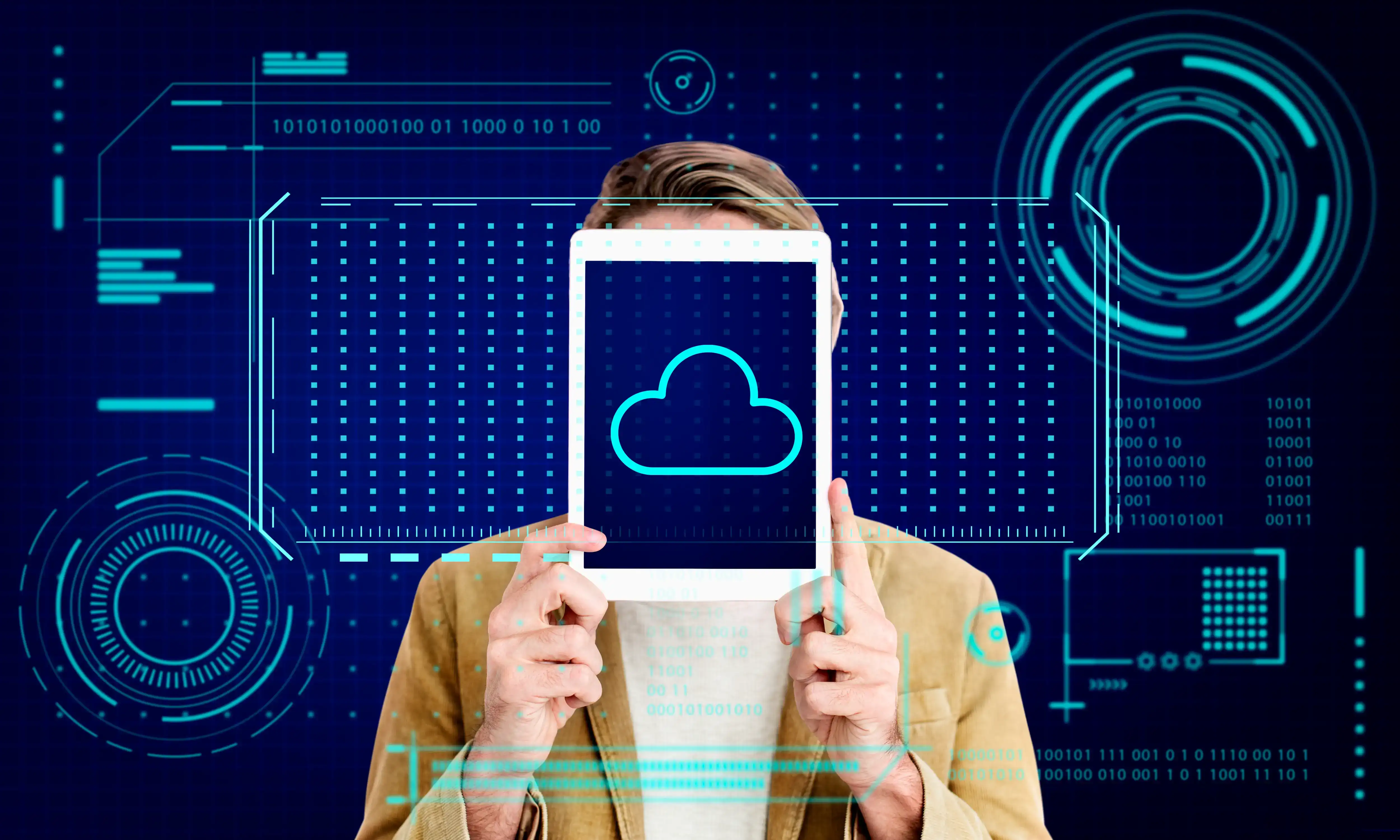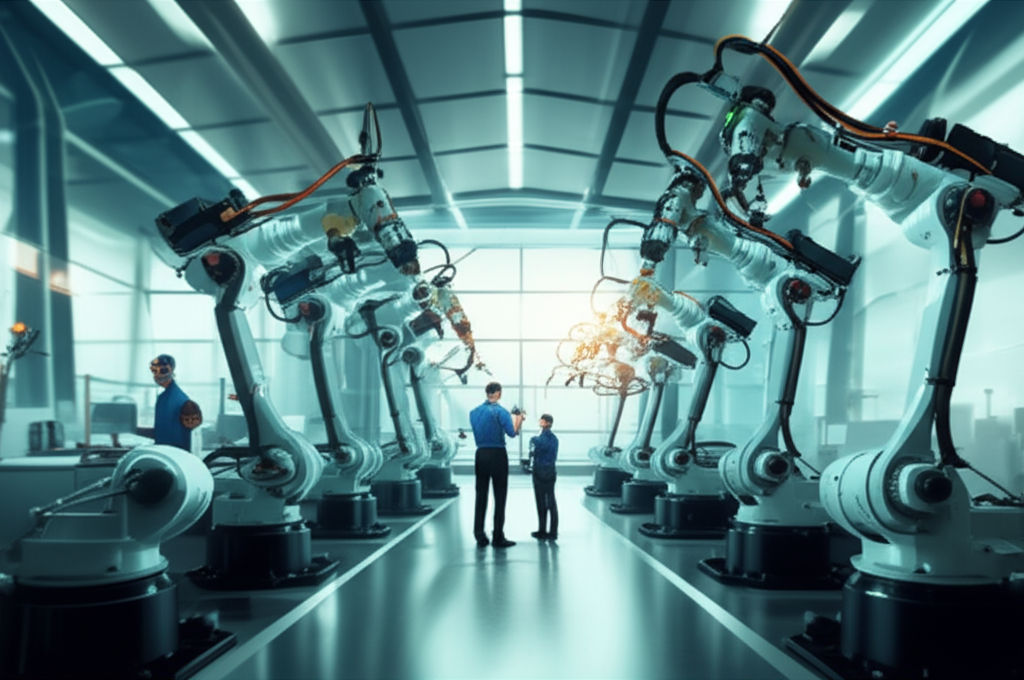Productivity Paradox: Why Less Output?
Emily Willis

Photo: Productivity Paradox: Why Less Output?
The Productivity Paradox: Why More Isn't Always More, and How to Achieve True Output
In an era defined by rapid technological advancement, we often assume that more tools and faster connectivity automatically lead to greater productivity. We equip ourselves with cutting-edge software, powerful devices, and constant access to information, expecting a significant boost in our output. Yet, for many, the reality feels different. Despite all these advancements, we often find ourselves working longer hours, feeling more overwhelmed, and paradoxically, producing less meaningful output. This perplexing phenomenon is known as the Productivity Paradox.
This article delves deep into the productivity paradox, exploring why our modern tools sometimes hinder rather than help our efficiency. We'll uncover the hidden costs of constant connectivity and digital overload, and most importantly, provide actionable strategies to reclaim your focus, master your digital environment, and achieve genuine, high-value output.
Understanding the Productivity Paradox
The concept of the productivity paradox isn't entirely new. It gained prominence in the late 1980s when economist Robert Solow famously quipped, "You can see the computer age everywhere but in the productivity statistics." This "Solow Paradox" highlighted the puzzling disconnect between massive investments in information technology and the seemingly stagnant productivity growth rates observed at the time.
Fast forward to today, and the paradox has evolved. While some economic studies suggest that technology does contribute to overall economic productivity on a macro level, the individual experience often tells a different story. For many, the sheer volume of digital tools, constant notifications, and the expectation of instant responsiveness have created a new set of challenges that can actively reduce personal and team productivity. It's no longer just about whether technology boosts output, but how its pervasive presence can lead to less output despite increased effort and seemingly efficient tools.
The modern productivity paradox isn't about a lack of effort; it's about misdirected effort. It's about confusing activity with accomplishment, and mistaking busyness for true productivity.
The Root Causes of Less Output in a High-Tech World
So, why does our hyper-connected, tech-rich environment often lead to a productivity slump? Several key factors contribute to this puzzling phenomenon.
Information Overload and Digital Distractions
We live in an age of unprecedented information abundance. Emails, instant messages, social media feeds, news alerts, and countless apps constantly vie for our attention. This information overload can make it incredibly difficult to concentrate on a single task. Each notification, each new message, acts as a tiny interruption that pulls our focus away from the task at hand. Studies show that even brief interruptions can significantly increase the time it takes to complete a task and lead to more errors. The sheer volume of digital noise makes it challenging to discern what's truly important from what's merely urgent, leading to a feeling of being constantly behind.
The Multitasking Myth
The ability to juggle multiple tasks simultaneously is often lauded as a sign of high productivity. However, cognitive science has repeatedly debunked the multitasking myth. What we perceive as multitasking is actually rapid task-switching. Our brains are not designed to truly focus on more than one complex cognitive task at a time. Each switch incurs a "switching cost" – a brief period where our brain has to reorient itself to the new task. Over a day, these tiny costs add up, leading to reduced efficiency, increased errors, and a feeling of mental exhaustion without much to show for it. This constant context-switching is a significant contributor to less output in a modern work environment.
Tool Overload and Complexity
While digital tools are designed to streamline processes, the sheer proliferation of them can ironically create complexity. Many individuals and teams use a multitude of platforms for communication (email, Slack, Teams), project management (Asana, Trello, Jira), document sharing (Google Drive, SharePoint), and more. Each tool has its own interface, notifications, and learning curve. The time spent managing these tools, switching between them, and trying to integrate disparate workflows can consume valuable energy that could otherwise be directed towards core tasks. This tool overload can lead to inefficiencies and frustration, contributing to the feeling of less output despite having so many "solutions."
Diminished Deep Work
In a world of constant interruptions, finding time for deep work – focused, uninterrupted concentration on a single, high-value task – has become a rare luxury. Deep work is where true innovation, complex problem-solving, and significant breakthroughs occur. Without dedicated periods for deep work, our output remains largely superficial, consisting of reactive tasks rather than proactive, impactful contributions. The inability to engage in sustained periods of focus is a direct driver of the productivity paradox.
Burnout and Well-being
The relentless pace of the digital age, coupled with the "always-on" expectation, contributes significantly to stress and burnout. The lines between work and personal life blur, leading to insufficient rest and recovery. When individuals are constantly stressed, exhausted, or mentally fatigued, their cognitive abilities decline, their decision-making suffers, and their capacity for productive work diminishes. Prioritizing well-being is not a luxury; it's a fundamental component of sustainable productivity and efficiency. Neglecting it inevitably leads to less output in the long run.
The Real Cost of the Paradox
The consequences of the productivity paradox extend beyond just feeling busy but unproductive. They have tangible impacts on individuals and organizations.
For individuals, the constant pressure to be "on," coupled with the feeling of never getting enough done,
Latest ✨
View Allchallenges and opportunities presented by economic uncertainty and explores strategies that governments and businesses can implement to mitigate risks, ensure stability, and pave the way for future success.
Emily Willis
Decode the market's core! Understand what truly drives our world, make informed decisions, and navigate economic challenges with confidence.
Emily Willis
Unlock the secrets to finding the best barber shop near you. This guide helps you navigate online searches, understand reviews, and get the perfect cut.
Emily Willis
Master smart investment strategies for financial growth. This guide demystifies investing, offering actionable steps to secure your future & build lasting wealt...
Emily Willis
Business
View All
August 5, 2024
Inspiring Leaders Who Can Be Your Role Modelseffective leadership in a constantly changing world and explores the traits and habits of inspiring leaders, both historical and contemporary. It highlights the key lessons from leaders such as Nelson Mandela, Martin Luther King Jr., Jacinda Ardern, Elon Musk, and Malala Yousafzai.
Emily Willis

July 9, 2025
Become a Chief Business OfficerBecome a Chief Business Officer (CBO). Explore this pivotal C-suite role, its responsibilities, essential skills, and the career path to strategic business lead...
Emily Willis

August 4, 2024
How to Build a Strong Brand Identity for Your BusinessBuilding a strong brand identity is essential for business success as it helps differentiate you in the market, connect with your audience, and build loyalty. Key steps include understanding your target audience, defining your mission and values, developing a unique selling proposition, creating a memorable brand name and logo, choosing brand colors and typography, crafting a brand voice and messaging, ensuring a consistent brand experience, leveraging visual content.
Emily Willis
Economy
View AllAutomation & AI are reshaping industries, boosting productivity, & creating job challenges. Grasp their crucial economic impact in this transformative era.
Read MoreExplore the circular economy: a transformative framework redefining how we make, use, and live for a sustainable, waste-free future.
Read MoreUnlock smart savings at Tampa Airport! Our guide to TPA Economy Parking offers affordable, convenient long-term solutions for your trip.
Read MoreEntertainment
View All
August 4, 2024
The Evolution of Digital Distribution in the Music Industry: Challenges and OpportunitiesThe music industry has been transformed by digital distribution, which allows quick access to a vast catalog of music through streaming services and online stores.
Emily Willis

August 4, 2024
Exploring Virtual Reality (VR) in Entertainment: Future Applications and DevelopmentsVirtual Reality (VR) technology is revolutionizing the entertainment industry by providing immersive and interactive experiences that transform audience interaction with content. VR creates simulated environments that allow users to engage with virtual worlds, characters, and narratives in ways that traditional media cannot.
Emily Willis

August 4, 2024
Profiles of Famous Artists Who Inspire the Younger Generationthe inspirational aspects of famous artists such as Vincent van Gogh, Frida Kahlo, Pablo Picasso, Banksy, Yayoi Kusama, Jean-Michel Basquiat, Georgia O'Keeffe, Andy Warhol, Kehinde Wiley, and Ai Weiwei. It highlights their perseverance, innovation, authenticity, social commentary, mental health advocacy, and representation, among other qualities, and how these aspects continue to inspire young artists to pursue their creative dreams.
Emily Willis
Health
View AllUnlock a vibrant life! Embrace the gentle power of walking for profound physical and mental health benefits. Accessible to all.
Emily Willis
Everside Health redefines primary care. Experience personalized, proactive, affordable, and accessible healthcare focused on your well-being. A new era of healt...
Emily Willis
ArchWell Health offers personalized, value-based primary care for seniors 60+ on Medicare Advantage. Holistic health, community focus, and better outcomes.
Emily Willis
Trending 🔥
View All
1
2
3
4
5
6
7
8
9
10
Lifestyle



Technology
View All
August 5, 2024
How IoT is Changing the Way We Live and Work
The Internet of Things (IoT) is revolutionizing daily life and professional environments by connecting devices to the internet, allowing for communication, data collection, and autonomous task performance. IoT is transforming homes, workplaces, healthcare, and transportation by enhancing convenience, efficiency, and safety.

August 4, 2024
The Future of Artificial Intelligence: Opportunities and Challenges
opportunities and challenges presented by Artificial Intelligence (AI) in various sectors such as efficiency, customer experiences, healthcare, education, and economic growth. It highlights the need to address ethical considerations, job displacement, privacy issues, security risks, and regulatory challenges associated with AI.

August 5, 2024
Tips for Implementing Cloud Computing Safely and Efficiently
Cloud computing is essential for modern businesses, offering cost savings, scalability, and improved collaboration. Implementing cloud computing requires careful planning to ensure safety and efficiency. Tips for safe and efficient implementation include conducting a needs assessment, choosing the right cloud service model, prioritizing security, planning for data migration, optimizing costs, training your team, implementing backup and recovery solutions, monitoring performance, planning for scalability, and staying updated with industry trends.

August 4, 2024
Blockchain Beyond Cryptocurrency: Innovative Uses in Various Industries
Blockchain technology is more than just cryptocurrencies like Bitcoin, it has far-reaching applications in various industries. Blockchain is a decentralized digital ledger that ensures transparency and security by recording transactions across multiple computers. It is being used innovatively in sectors such as supply chain management, healthcare, finance, real estate, voting systems, and intellectual property.


















